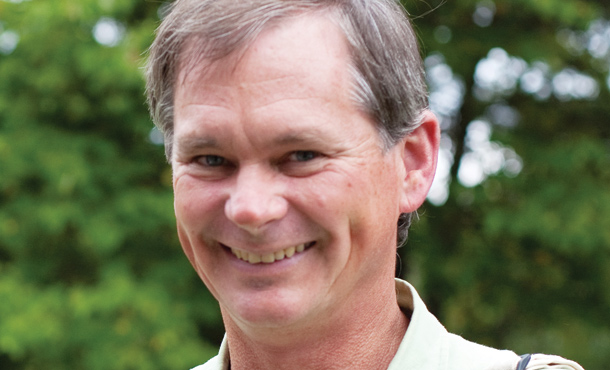Jim Hershberger ’82, MA ’97
Harrisonburg, Virginia
 As Jeff Heie is doing now (in 2010), Jim Hershberger defied gender stereotyping from 1990 to 1996, when he was the main caregiver for the three Hershberger children as they grew from preschool to upper-elementary ages.
As Jeff Heie is doing now (in 2010), Jim Hershberger defied gender stereotyping from 1990 to 1996, when he was the main caregiver for the three Hershberger children as they grew from preschool to upper-elementary ages.
Jim’s wife, Ann, was then a nurse with a master’s degree (she now has a PhD). The couple had served with Mennonite Central Committee for 10 years in Nicaragua. When they returned to the United States in 1990, Ann’s nursing credentials put her in the best position to be the family breadwinner.
“It was difficult for me [to be a ‘househusband’ and full-time father],” recalls Jim. “As a man, I was supposed to be out ‘hunting and gathering.’ But I now have memories that I wouldn’t have had otherwise.”
He entered CTP in 1994 (one of the program’s first two full-time students) to “re-tool” himself, as he puts it. “I thought it would give me some options in terms of future employment.”
Two years later Jim began work in the Harrisonburg Refugee Resettlement Office. He found his conflict transformation training handy when dealing with the school system. One teacher, for example, became frightened when a child recently arrived from Yugoslavia kept drawing pictures of tanks, bombs and people dying. Jim was able to explain that the boy’s own home had been bombed and that people close to the boy had been killed.
When a hurricane devastated Nicaragua in the fall of 1998, the Hershbergers returned to that country for a year to do relief work sponsored by Mennonite Central Committee.
Jim next became the pastor of Beldor Mennonite Church in Elkton, Virginia, a village 18 miles east of Harrisonburg. He pastored for nine years, sometimes addressing conflicts within his congregation, before returning to the Refugee Resettlement Program as its director in September 2010.
When he was with the refugee program in the late 1990s, the clients were mostly Christians from Eastern Europe and Central America. Now (2010), they are mostly Muslims from Iraq. “This is a chance for area churches to extend hospitality to people of another faith,” Jim says.
